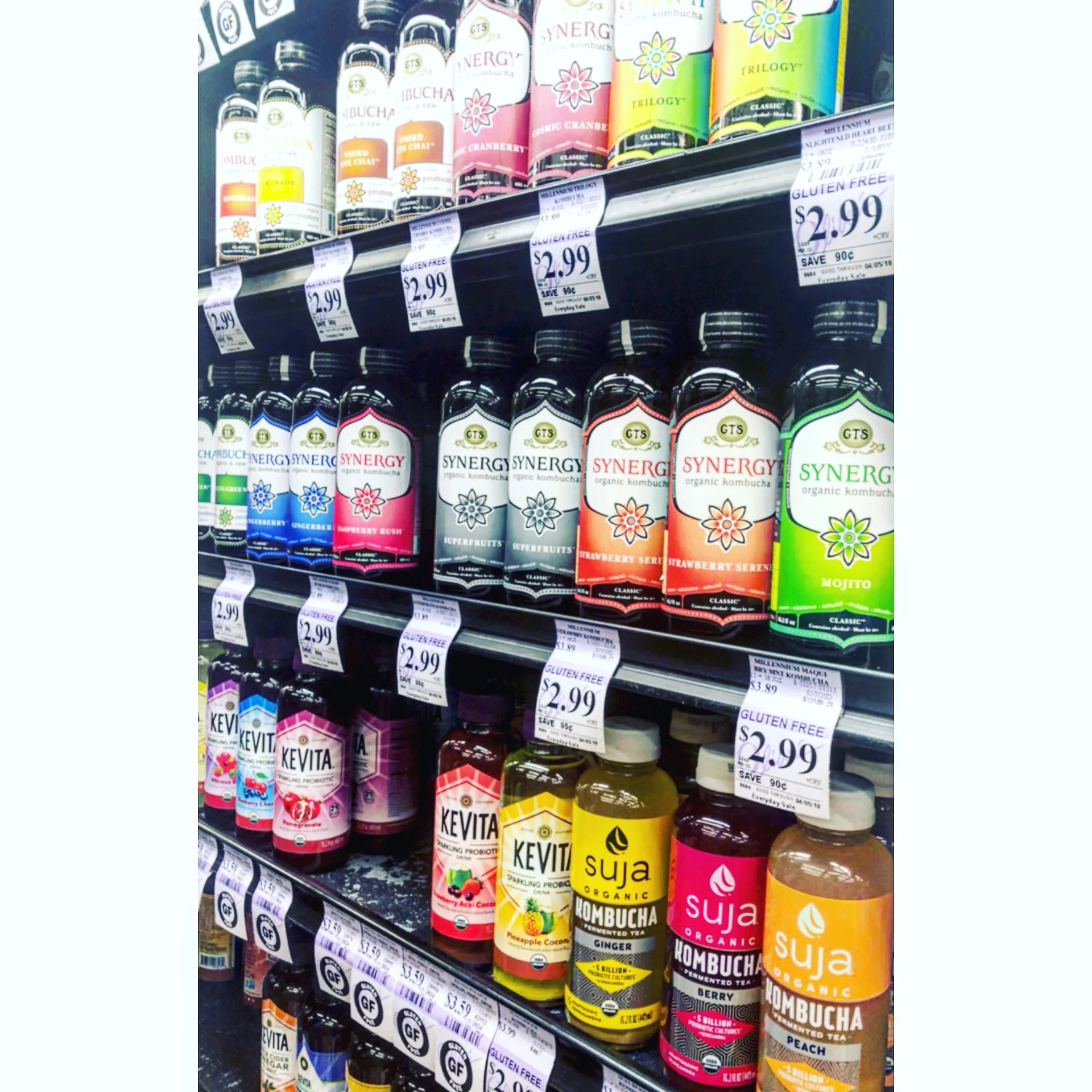Happy Gut
While our bodies are made up of distinct systems, all of them need to be operating in harmony for us to function at our optimum. Lately, there have been many research studies conducted to determine the connection between our gut-health and the health of the rest of our body. Due to this, probiotics have become a buzzword in the wellness community. Now, I’m not one to jump on any bandwagons, but this “trend” is actually backed by scientific evidence and comes in some pretty delicious options.
While probiotics have been a top trending word in the US, they have actually been around for hundreds of years, and their use has spanned across many cultures. Fermentation was originally used as a way to preserve food before refrigeration, but fermented foods, such as sauerkraut, kimchi, and yogurt, all contain probiotics. The healthy bacteria in these foods help maintain a balanced gut which results in greater overall health for the host, us! Probiotics literally mean “for life”, which is fitting because that is also their function within our gastrointestinal tract. While the exact mechanism of action is unknown, studies have shown that probiotics modify existing gut bacteria, increase the strength of the epithelial lining of the gut, and provide positive changes for the immune system (Brito-Bermudez, 2012). One way probiotics can modify the environment of our gut is by taking up space; this prevents harmful bacteria from overpopulating. This is especially important after a round of antibiotics. Although antibiotics are often a necessary form of treatment, they are not specific to only the bacteria causing our illness; they wipe out the good bacteria as well. Scientists have linked this absence of bacteria to diarrhea that often accompanies antibiotic use (Schroeder, 2018). Therefore, after finishing a prescription, it is important to reinstate healthy bacteria to re-establish a healthy gut environment.
Further, research is showing that the presence of good bacteria in our gut can help those with Irritable Bowel Syndrome (IBS). To date, there are three different types of IBS; one that causes constipation (IBS-C), another causing diarrhea (IBS-D), and another that is a combination of both. One theory for the pathophysiology of IBS-D is a hyperactive communication between the gut and the brain. This is caused by an increase in the production of serotonin in the gut, which causes increased motility, secretion, and sensation; these are the physiological responses responsible for IBS-D symptoms (Wang, 2018). Studies have also discovered serotonin transporters (SERT) on enterochromaffin cells lining the GI tract which are responsible for removing serotonin from within the gut (Wang, 2018). Due to their important physiological functioning, these transporters are being used as targets for IBS-D therapy. Research has shown the bacterial strains L. acidophilus and B. longum are able to increase SERT activity and decrease the levels of serotonin in the intestine (Wang, 2018). This means increasing these strains of bacteria within the intestines can help decrease the symptoms associated with IBS-D.
Whether you are trying to maintain a healthy GI tract, re-establish microflora, or decrease IBS-D symptoms, research recommends five to ten billion bacteria per dose to create a healthy gut environment (Schroeder, 2018). This dosing is based on probiotic capsules; therefore, if you are choosing to get your probiotics from drinks such as kefir or kombucha, take a look at the label which should indicate approximately how many bacteria are in one serving. The more diversity our gut contains, whether from different strains of bacteria or greater quantities, the greater protection we will have within our bodies to prevent illness.
References:
Brito-Bermudez, M., Plaza-Diaz, J., Munoz-Quezada, S., Gomez-Llorente, C., & Gil, A. (2012). Probiotic Mechanisms of Action. Karger. Retrieved February 18, 2018, from https://www.karger.com/Article/FullText/342079#.
Schroeder, M. O. (n.d.). Getting Your Probiotic Fix When Taking Antibiotics. Retrieved February 18, 2018, from https://health.usnews.com/wellness/articles/getting-your-probiotic-fix-when-taking-antibiotics
Wang, Y., Cao, Y., Feng, L., Wang, B., Jiang, K., Li, S., . . . Zhao, J. (2018). Lactobacillus acidophilus and Bifidobacterium longum supernatants upregulate the serotonin transporter expression in intestinal epithelial cells. Saudi Journal of Gastroenterology,24(1), 59. doi:10.4103/sjg.sjg_333_17
















